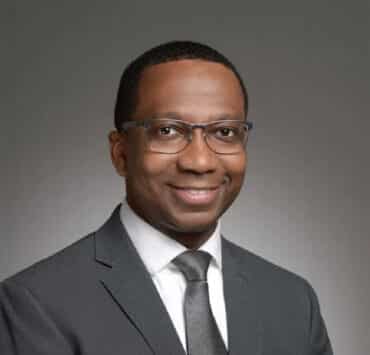Matthew McElrath may be in the third major act of his career, but he hasn’t lost a shred of what made him great in the first place. The senior vice president and chief human resources officer at Yuma Regional Medical Center already has a resume any HR professional would be proud to retire on.
In his sixteen years working for the Mayo Clinic, McElrath helped open its Phoenix hospital, staffing from scratch an organization located on 120 acres of ranching property in northern Phoenix. (When he first visited the site, he literally had to maneuver over cow guards to get onto the property).
McElrath later took his talents to Los Angeles, spending over a decade as head of HR at Keck Medicine of USC. He aided the massive expansion of the organization as it tripled its workforce, became a magnet nursing hospital, and solidified its reputation as one of the premier academic medicinal institutions in the world.
After long tenures with two of the most well-known healthcare organizations in the world, what prompted his return to Arizona to work at a regional medical center that serves a primarily rural population?
“I think you have to look at the organization that’s being built here to answer that question,” McElrath explains. “There are so many unique challenges that Yuma is facing, but at the same time, there are so many things I’ve seen since coming here that are absolutely cutting edge. And that is being driven by incredible people.”
“Our accountability is to our community, and that’s where we feel the impact of our decisions.”
Matthew McElrath
Yuma is making significant moves to evolve its practice. McElrath isn’t the only big gun being brought in from a larger organization; the company’s chief financial officer, chief legal officer, chief experience officer, and a significant number of the executive team are all relatively new, with most coming from larger health systems.
“We’ve all compared notes, and I think everyone here really appreciates the size of this organization compared to the ones we came from and our ability to see the impact of our work on a daily basis,” he says.
One example: over the summer of 2022, Yuma was able to increase staff wages, especially for nurses, by more than 13 percent. The reason was two-fold. It would not only make Yuma a competitor in the larger talent market, but also help retain the talent pool it had already developed.
“Part of the issue is getting some new talent through the front door, but if you don’t also close the back door, you’re constantly going to be playing catch-up,” McElrath explains. “Retention is often overlooked, but it’s such an important consideration.”
Yuma is also focusing in on employee wellness. Staff can get up to $1,000 reimbursed for everything from gym memberships to meditation classes to financial planning assistance. The program was launched in January 2023, and McElrath says the organization is proud to be able to help staff improve their health—physically, mentally, and financially.
McElrath also brings significant leadership skills to Yuma. While at Mayo, he published a paper centered around a leadership academy he helped build. At Keck, he helped build an organization called the Healthcare Leadership Academy that provided intensive year-long leadership experience for eight different cohorts of participants. The program even partnered with Children’s Hospital of Los Angeles.
McElrath’s doctoral work centered around leadership, and the CHRO continues to provide coaching, strategy sessions, and mentorship in the field to this day.
“I enjoy working with folks that are in that rising generation,” McElrath says. “I see people coming up in middle management and taking on those next complex assignments. It’s a privilege to help coach them on how to tackle their first hundred days or first couple of years. I just love the work.”
McElrath’s colleagues admire his dedication to his work. “Matt’s able to inspire action that continuously moves the organization forward, because people know he has their best interests—and those of the organization—at heart,” says Mitch Bergen, client engagement lead for Talent Plus.
“It’s really a breath of fresh air for all of us in our careers.”
Matthew McElrath
The CHRO’s leadership position at Yuma, he believes, is a way of giving back in his career. He’s seen the continuing challenges faced by smaller health systems, and he wants to ensure that communities still have access to the care they depend on.
“Especially post-pandemic, you continue to see the financial struggles that a lot of community hospitals have that are in smaller, more agricultural communities,” McElrath explains. “They simply do not have the resources that more urban hospitals have. But we have an incredible team here that is working to ensure access to rural healthcare. I can’t say enough about how impressed I am at what this organization is building.”
It’s not easy. McElrath’s organization has faced chronic understaffing for years. But he is already seeing the impact that new blood has brought to the organization, and that’s exactly the point.
“I think so many of us got used to being lost in the shuffle of larger organizations,” McElrath notes. “Coming here, we’re able to act much more nimbly. Our accountability is to our community, and that’s where we feel the impact of our decisions. It motivates you to see the results of your work playing out so quickly. It’s really a breath of fresh air for all of us in our careers.”
Community healthcare will always face challenges in rural locations, including finding a way to forge ahead without having nearby health systems to use as a guidepost. But Yuma Regional Medical Center is a prime example of the kind of jumpstart that some new blood can bring to an organization. And this might just be McElrath’s best act yet.
America is facing a dire shortage of physicians, nurses, and other professionals to deliver the quality of healthcare patients expect and deserve.
Fortunately, Duffy Group specializes in recruiting top healthcare talent—from C-suite executives to clinical and administrative leaders—using a highly effective approach called Recruitment Research.
To learn more, visit duffygroup.com or call (602) 861-5840.
Through our partnership, Talent Plus and Yuma Regional Medical Center ensure their core values of respect, teamwork, integrity, innovation, compassion, wellness, and excellence align to how they attract, select, and develop talent. This alignment of individual, team, and organization ensures they will continue to deliver on their brand promise.


